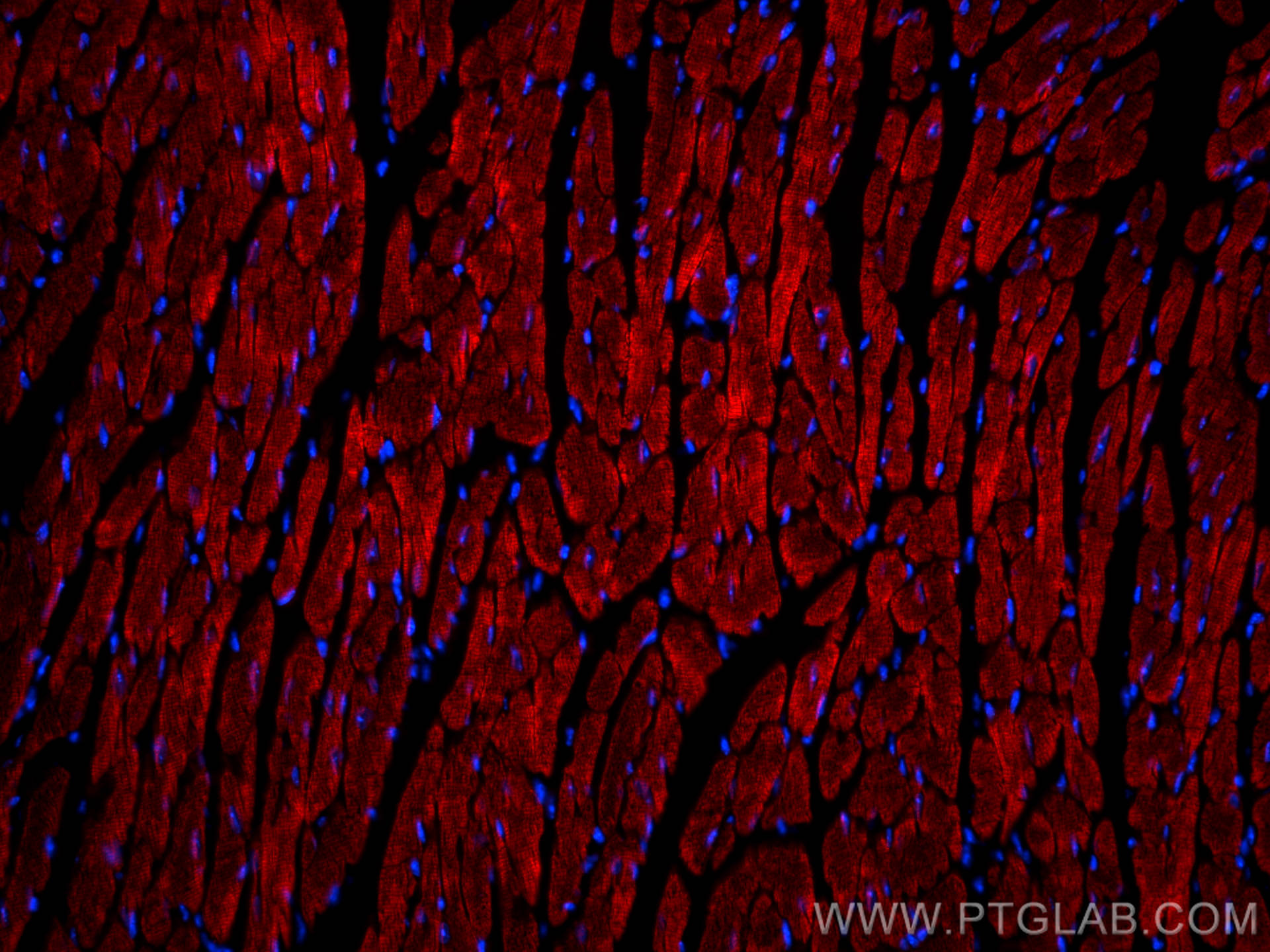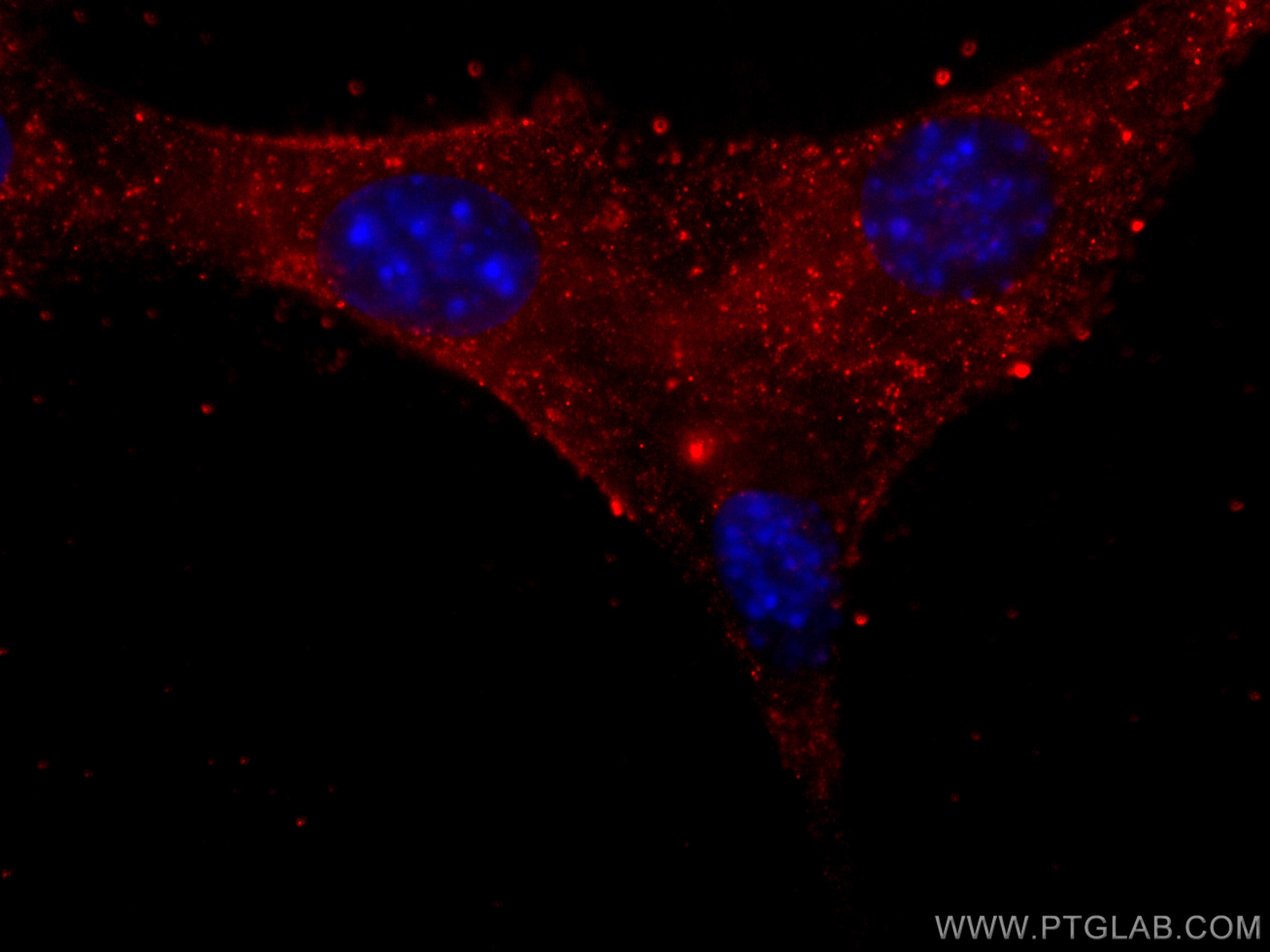Tested Applications
| Positive IF-P detected in | mouse heart tissue |
| Positive IF/ICC detected in | C2C12 cells |
Recommended dilution
| Application | Dilution |
|---|---|
| Immunofluorescence (IF)-P | IF-P : 1:50-1:500 |
| Immunofluorescence (IF)/ICC | IF/ICC : 1:50-1:500 |
| It is recommended that this reagent should be titrated in each testing system to obtain optimal results. | |
| Sample-dependent, Check data in validation data gallery. | |
Product Information
CL594-60229 targets Myosin Light Chain 2 in IF/ICC, IF-P applications and shows reactivity with human, mouse, rat, pig samples.
| Tested Reactivity | human, mouse, rat, pig |
| Host / Isotype | Mouse / IgG1 |
| Class | Monoclonal |
| Type | Antibody |
| Immunogen |
CatNo: Ag1356 Product name: Recombinant human MYL2 protein Source: e coli.-derived, PGEX-4T Tag: GST Domain: 1-166 aa of BC015821 Sequence: MAPKKAKKRAGGANSNVFSMFEQTQIQEFKEAFTIMDQNRDGFIDKNDLRDTFAALGRVNVKNEEIDEMIKEAPGPINFTVFLTMFGEKLKGADPEETILNAFKVFDPEGKGVLKADYVREMLTTQAERFSKEEVDQMFAAFPPDVTGNLDYKNLVHIITHGEEKD Predict reactive species |
| Full Name | myosin, light chain 2, regulatory, cardiac, slow |
| Calculated Molecular Weight | 19 kDa |
| Observed Molecular Weight | 18 kDa |
| GenBank Accession Number | BC015821 |
| Gene Symbol | Myosin Light Chain 2 |
| Gene ID (NCBI) | 4633 |
| RRID | AB_2883447 |
| Conjugate | CoraLite®594 Fluorescent Dye |
| Excitation/Emission Maxima Wavelengths | 588 nm / 604 nm |
| Form | Liquid |
| Purification Method | Protein G purification |
| UNIPROT ID | P10916 |
| Storage Buffer | PBS with 50% glycerol, 0.05% Proclin300, 0.5% BSA, pH 7.3. |
| Storage Conditions | Store at -20°C. Avoid exposure to light. Stable for one year after shipment. Aliquoting is unnecessary for -20oC storage. |
Background Information
MYL2, also named as MLC-2v and MLC-2, is ventricular/cardiac muscle isoform. Defects in MYL2 are the cause of cardiomyopathy familial hypertrophic type 10 (CMH10). Defects in MYL2 are the cause of cardiomyopathy familial hypertrophic with mid-left ventricular chamber type 2 (MVC2). MYL2 has been widely used as a marker of mature ventricular cardiomyocytes.
Protocols
| Product Specific Protocols | |
|---|---|
| IF protocol for CL594 Myosin Light Chain 2 antibody CL594-60229 | Download protocol |
| Standard Protocols | |
|---|---|
| Click here to view our Standard Protocols |






